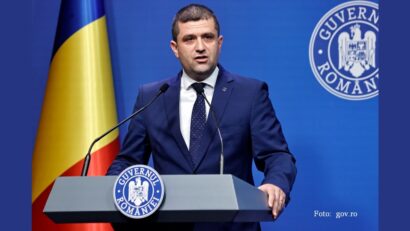A conflict with major implications
The conflict in Syria has resulted in a massive refugee crisis, a high death toll and a rise in terrorism.

Corina Cristea, 18.12.2015, 12:34
The conflict in
Syria has resulted in a massive refugee crisis, a high death toll and the
worrying rise of the Islamic State, which has become a threat to the entire
world. Faced with terrorist attacks at its very heart, the European Union has
had to come up with new rules.
The problems on
Europe’s borders are to a large extent the consequence of the dramatic
situation in Syria, which has been torn by civil war for more than four years
and where the Islamic State has consolidated its positions. The jihadists hide
behind defenceless men, women and children as human shields, said US president
Barack Obama recently, adding that while ISIS targets are hit harder than ever
in Syria and Iraq, progress needs to keep coming faster.
According to the
US Department of the Treasury, ISIS has become the best-financed terrorist
group in history in a matter of years, smuggling antiques, doing human
trafficking and demanding ransoms of hundreds of thousands and even millions of
dollars to release hostages. The group is also financed by donations made by
influential people from the Arab world.
Most of the
money, however, comes from the black market of oil products, which is believed
to bring in around 40 million dollars a month to ISIS or Daesh, the Arabic
acronym by which the group is also known. The term is, however, banned in the
territories controlled by the terrorists but used more and more frequently in
the West. It is no accident that soon after November’s terrorist attacks in
Paris, the French president Francois Hollande used this very term to condemn
the attacks. In Arabic, the word for state, dawla, means both state in the
modern sense of the word, and the mediaeval caliphates, and experts say ISIS
intentionally used this term to create ambiguity and to encourage its adherents
to consider the Islamic State in Iraq as a proto-caliphate.
Regardless of
the name used to describe it, this terrorist organisation has developed a
network of supporters in Europe and the United States, making intense use of
the Internet, social networks and contemporary forms of communication.
Political and military analyst Claudiu Degeratu explains:
What we are
dealing with here is not only a support network, but active cells, trained
people who regularly go to the training sites in the Middle East, in particular
Syria, where they constantly plan new attacks. This is why there is no
difference between, let’s say, the terrorist profile of the Middle East and that
of Europe. In my opinion, at least as far as Daesh is concerned, we should talk
about a similar profile in both Europe and the Middle East. We are dealing with
a proto-state and with institutions that use certain procedures, which is why
the tendency is to consider Daesh not only as a terrorist group, but also as a
state with specialised functions and networks. These are not just simple cells
acting according to an autonomous plan.
We asked Claudiu
Degeratu if some states are more exposed to terrorism than others within the
European Union:
At this point,
if we look at statistics and any sophisticated model, the interconnection is so
great that I think there is a common area of threats and risks, while there are
also differences between one country to the next. It’s difficult to create a
hierarchy in terms of possible targets and level of exposure. Exposure is high
because there is a larger freedom of movement within the European Union, so the
level of exposure is, statistically speaking, significantly similar.
This very week, the European Commission has proposed the
setting up of a new agency responsible for coast guard and border control on
the EU’s external borders. The agency will use the resources of Frontex and of
the member states, and also will purchase its own equipment and will be able to
mobilise a rapid-reaction force within just 3 days, if need may be. The
decision was made after the refugee crisis highlighted the weak points of the
EU’s external border management mechanisms.
Responses to the growing threat posed by the Islamic State
terrorists also come from the Muslim world. Saudi Arabia has announced the
setting up of a military alliance with another 34 Muslim countries to fight
against the extremist groups in Syria, Iraq, Egypt and Afghanistan. This announcement comes
from the Islamic world’s vigilance in fighting this disease so it can be a
partner, as a group of countries, in the fight against this disease, said
Saudi Deputy Crown Prince and Defence Minister Mohammed bin Salman. The
new alliance’s joint operations centre will be based in Riyadh.
In another move, in Washington, president Barack Obama has
once again excluded the possibility of deploying a large number of ground
forces to the region, although, according to a recent opinion poll, more than
50% of the Americans say their country should send ground troops to Iraq or
Syria to fight ISIS.






























